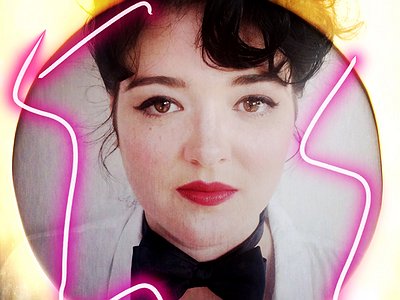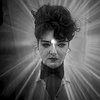Part 2
With more and more musicians creating than ever and more and more of these creations being released, what does this mean for you as an artist in terms of originality? What are some of the areas where you currently see the greatest potential for originality and who are some of the artists and communities that you find inspiring in this regard?
It doesn’t affect me at all in terms of originality. I think it’s great that everything has become so accessible - home studios, recording equipment, instruments, etc. People are creating and sharing. I don’t think artists need to be threatened by or in competition with each other. Everyone has their own stories to tell in their own way. Creativity is an endless well inside of us. It’s always there ready to be tapped into. It will never dry out.
Aside from music, I’m a big fan of cable television (HBO, Showtime, FX) and online streaming networks like Netflix and Amazon. The quality of programming being produced just continues to grow and grow. The stories are so good. The writing’s so good. The acting’s so good. The artistic bar just keeps getting raised higher and higher. It’s inspiring and exciting to see happen.
How strictly do you separate improvising and composing?
To me, they’re one in the same. They always have been. That’s how I work.
How do you see the relationship between sound, space and composition and what are some of your strategies and approaches of working with them?
With my newer stuff, I was trying to explore a less-is-more approach. All the other SB records have had a lot going on- rhythmically, melodically, lots of instruments, parts, and patterns. With the new records I wanted something simpler all the way around. Less instruments, less parts, less people. This idea sparked when I started to get into hip-hop again a few years ago. Musically, they do so much with so little in that genre. Especially compared to what I’m naturally inclined to do- keep adding, keep layering, find room for everything. The less-is-more concept is really fascinating to me. Something I wanted to explore and experiment with, and try to import into my own version of pop.
What's your perspective on the relationship between music and other forms of art – painting, video art and cinema, for example – and for you and your work, how does music relate to other senses than hearing alone?
I’m a very visual person, so visuals and music have always gone hand in hand. I couldn’t imagine one without the other. They inspire each other. And I don’t mean music videos, TV or film- but just listening to a piece of music and seeing what your imagination comes up with on it’s own. That’s usually a lot more interesting than what we’re able to produce anyway. There’s no limits or boundaries with imagination.
What's your view on the role and function of music as well as the (e.g. political/social/creative) tasks of artists today - and how do you try to meet these goals in your work?
I’m happy the world of social media is out there and people feel connected to whatever they want to feel connected to, but that’s a strange world to me. I don’t really understand it. And think it puts an unnecessary pressure on artists to get microscopic about their image. Which, ultimately, is just something to distract them from focusing on what they do best; being creative. And now that business, opportunities, and artist support are so closely linked to how popular your social media pages are, and online presence is- again, I don’t get it. It’s quantity over quality. And I can’t say that’s a world I’m really interested in or dying to be a part of. The only goal I have is to stay true to myself. Be honest and allow that to bleed into any creative project I’m working on.
Listening is also an active, rather than just a passive process. How do you see the role of the listener in the musical communication process?
The listener has a very active and special role. You get to receive a gift the artist is giving you. You get to take them in, in the most abstract way. Listen to what they’re saying, what they’re expressing, how their music makes you feel, why it makes you feel that way, what does it remind you of, what do you see, what do you taste? It’s an opportunity to let go and see where your subconscious takes you. It’s all communication. And once you’re done processing, by default it will inspire something in you. Even if you hated what you were listening to, it’s affected you now, and you will move forward in a different way because of it.
Reaching audiences usually involves reaching out to the press and possibly working with a PR company. What's your perspective on the promo system? In which way do music journalism and PR companies change the way music is perceived by the public?
Social media (and press falls into that) is a mystery to me, so I’m always happy and grateful to work with a good PR person or company. I’ve been working with Michelle King, previously of Team Clermont and now of Noisy Ghost, for years. And always feel I’m in good hands with her.
I don’t know much about the relationship between PR companies, music journalists and the public. On a very basic level, it seems to me that PR companies try to get people interested in their clients. Music journalists share their thoughts and opinions on things they find interesting. And the public takes note of the information that’s being shared.
Do you have a musical vision that you haven't been able to realise for technical or financial reasons – or an idea of what music itself could be beyond its current form?
I would love to do a tour one day in the vein of what Laurie Anderson does. Performance art based. I saw her years ago at UCLA and it was such a moving show - really beautiful. She played violin, sang, talked. And with the sets she had, it was almost like a play. It was so inspiring. I also saw Sleep No More this year and that blew my mind. I would love to be involved in something like that as well.
You can find Swahili Blonde online at www.facebook.com/swahiliblonde






